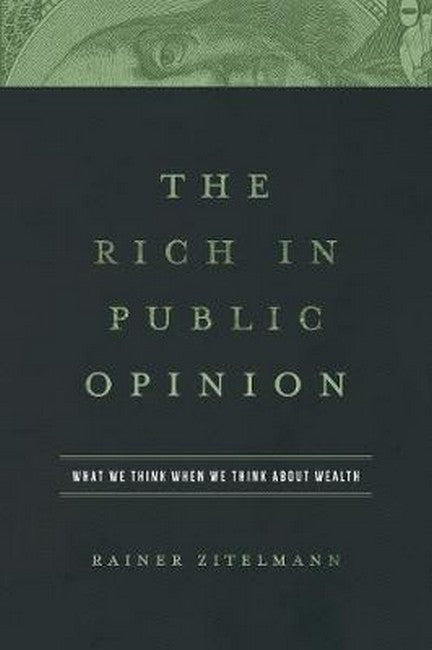Dr. Rainer Zitelmann is a historian and sociologist. In the late 1980s and early 1990s, he worked at the Central Institute for Social Science Research at the Free University of Berlin. He was then appointed section head at the leading German daily newspaper "Die Welt". In 2000, he founded a real estate public relations company. Zitelmann is the author of 22 books, which have been very successful in Europe and Asia. His two most recent books are The Wealth Elite (2018) and The Power of Capitalism (2019).
Description
"The Rich in Public Opinion should be the standard reference on the subject for years to come."--Rob Weir "Libertarian Book Reviews, June 6, 2020 " "Zitelmann's book presents us with exemplary scholarship and analysis, helping us understand the social and economic background of how the rich are perceived, and making the case for greater tolerance in our society. To say that it is well worth reading and absorbing the information presented in these pages would be an understatement, and an impoverishing one at that. I hope that as many people as possible will read it and take its lessons to heart."--Adam Smith Institute, July 8, 2020 "Rainer Zitelmann exposes, dissects, and quantifies the twin vices of envy and covetousness . . . and makes it impossible for future generations to ignore: Atlas Shrugged--with numbers and footnotes." --Grover Norquist, president, Americans for Tax Reform--Grover Norquist "This is a timely and relevant book, not least because while 'eat-the-rich' rhetoric may be good politics, it is demonstrably a poor guide to policy." --Kristian Niemietz, head of political economy, Institute of Economic Affairs--Kristian Niemietz "This is a very timely book about the rarely mentioned prejudice, classism, and denigration of those with wealth and status. Zitelmann systematically and scientifically explores why this attitude is so pervasive." --Madsen Pirie, president, Adam Smith Institute--Madsen Pirie

